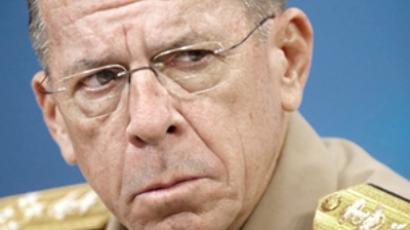“We have become nuclear” – Iranian president

President Mahmoud Ahmadinejad has declared that Iran is a “nuclear country,” while warning that the only option for the West is co-operation with the Iranian nation.
"They (the West) did not like us becoming a nuclear country, but we became nuclear,” the Iranian president told a cheering crowd on Tuesday in the northern Iranian city of Karaj. “The Iranian nation won the political war of the past years.”Ahmadinejad, with an eye to upcoming talks in late January with the five permanent members of the UN Security Council, as well as Germany, said that the “previous path” of imposing sanctions against Iran will not achieve the desired results.“That road is closed,” he said.Instead, the Iranian president continued, the West would have to choose the “second path,” which is “co-operation with the Iranian nation and recognition of the rights of the Iranian people.”The United States and other Western nations suspect that the Islamic Republic is attempting to build nuclear weapons under the guise of a civilian nuclear energy program. In June, the UN Security Council imposed its fourth round of sanctions against Iran in an effort to block Tehran from enriching uranium.The Iranian leader dismissed the UN sanctions against Iran as "illegal," adding that such efforts would only "strengthen the Iranian nation and accelerate the pace of our progress."Iran held a first round of talks earlier this month with officials from the US, China, Russia, France, Britain, Germany and the European Union in Geneva.One EU diplomat, who agreed to speak on the condition of anonymity due to his participation in the talks, said that it appeared Ahmadinejad was attempting to strengthen his hand with tough rhetoric before the upcoming meeting with the UN Security Council. “He [Ahmadinejad] would like everyone to believe that any further resolutions and sanctions to prevent Iran from further enriching uranium will end in failure,” the diplomat said. “But that is an issue that will have to be settled by all of the attending members [of the Security Council], and not by Mr. Ahmadinejad himself.”The European's Union's foreign policy chief, Catherine Ashton, hinted to reporters in Geneva that some level of co-operation with Tehran over the nuclear issue may be possible.At the Istanbul meeting "we plan to discuss practical ideas and ways of co-operating toward the resolution of our full concerns about the nuclear issue," she said. Ahmadinejad also warned in his speech that any country that attempts to “prevent the Iranian nation from achieving its rights" would “regret it.”No desire to “become like the West”Meanwhile, in a separate meeting with intellectuals and managers of Alborz Province on the same day, Ahmadinejad said Iran is “on the threshold of a historical leap in a variety of fields,” as quoted by Press TV, the Iranian news agency. He outlined the importance of drafting an "Iranian-Islamic" model of planning in order to redirect the country away from a Western-based path to development. "We plan to set a system and develop an Islamic and Iranian model for planning,” Ahmadinejad said. “We don't want to become a country similar to Western states." The Iranian president expressed confidence that 99 per cent of the Iranian nation would resoundingly reject the opportunity “to have a country just like the Western states in the future."Robert Bridge, RT













